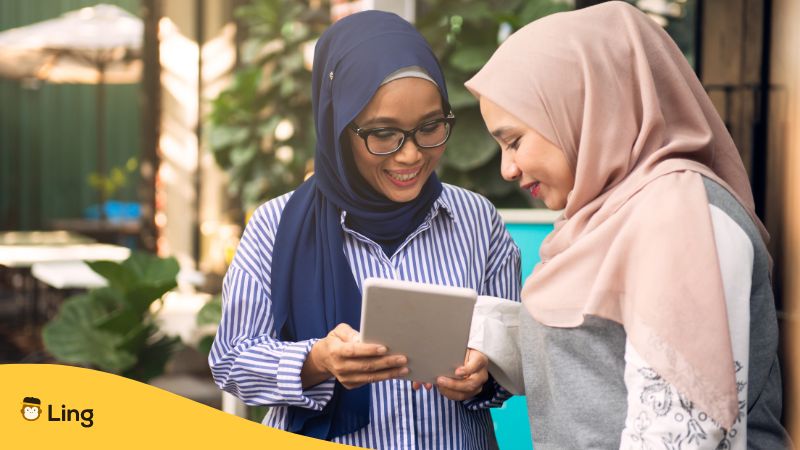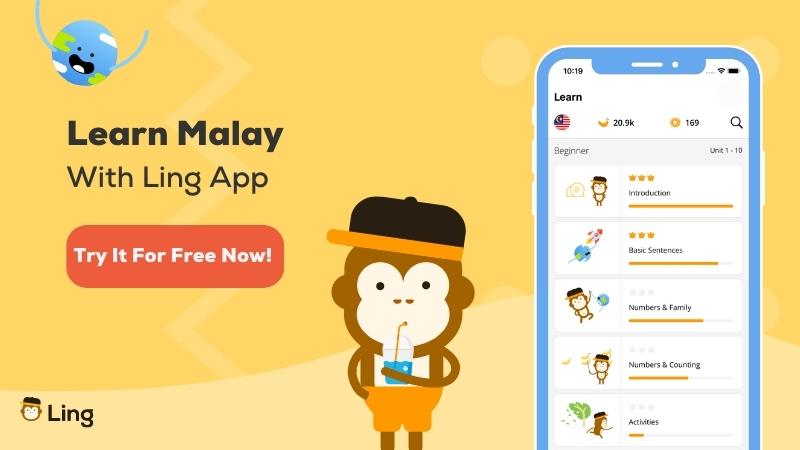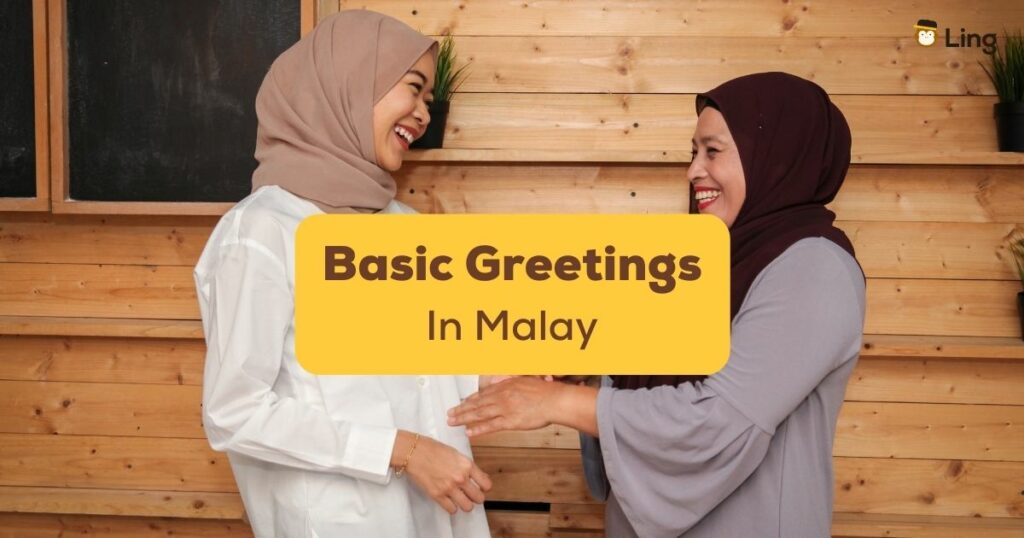The Malaysian language is an interesting sort. It is used by the Malaysian people and is widely spoken in Indonesia, Singapore, and even Brunei. That’s why learning Malay lets you communicate better in the local language in many countries!
But how exactly do you say “good morning” or “good night” in Malay? What are some basic Malay phrases that you can use to greet people? That’s what we’re going to talk about today – some basic Malay greetings that you can use in daily speech.
Don’t worry – even if you speak English exclusively, these greetings will be easy to say and remember. Also, they will be a great help if you visit a country that speaks the Malay language. So hop in — we’ve got some learning to do!
Basic Greetings In Malay – Saying Hello In Bahasa Malaysia
What You Need To Know About Malaysian Culture

Before we learn Malay today, we need to take a quick look at some social etiquette on how to greet people in Malaysia. Their people adhere to some societal standards regarding greetings, and we must consider those before learning greeting phrases.
1. Greetings Are Essential in Malay Culture
Greetings are essential in any culture, even Malay. How you greet someone will determine the amount of respect you’ll be showing the individual you are greeting. First impressions last, but for Malaysians and those who speak Malay, they last longer.
2. Greeting The Elders Should Take Priority
When greeting a group, you must always first greet the eldest person in the room. This is because Malaysian culture places a lot of respect for its elders. For example, when walking past a nenek or datuk, one must bow or bend slightly with the younger people’s heads lower than the elders’.
And speaking of bowing, younger people need to bow their heads slightly when they greet someone older. The most acceptable way to address elders is with pakcik (uncle) or makcik (aunt.) Try saying it now!
| English | Malay |
| uncle | pakcik |
| aunt | makcik |
3. Shake Hands, But With Conditions
A typical physical greeting among people who speak the Malay language is a handshake. In Malaysia, however, physical contact between men and women is not always permitted. If a man is to greet a Malaysian woman, they must wait for the lady to extend their hand first.
Between male Muslim Malays, however, things are a lot more enthusiastic! For example, men may greet someone of the same gender by using both hands to grasp the other person’s hands, even with a shake or two.
4. Salaam is Enough For Most Malaysians

Malaysia is primarily Muslim and, as such, adopts many Islamic traditions. But, for most people you meet on the street, this is the most essential Malay word you should know: Salaam. Okay, we know it’s Arabic, but it is the most common greeting in many Muslim countries – like Malaysia! So, when in doubt, say Salaam!
5. Malaysians Love To Ask If You’ve Eaten
As with many Southeast Asian countries, you’ll learn one of the most essential Malay phrases: Sudah makan. It means, “Have you eaten?” You might hear it even if it’s not time to eat, which can be jarring for some. However, sudah makan is considered polite to ask how someone is in Bahasa Melayu, although in a more roundabout way.
6. Be Thankful – But in The Malaysian Language
People in Malaysia are big on gratitude. So if you’re planning a trip to their country, thank everyone you see. One of the most useful phrases for your future travel will be terima kasih, which means “thank you.” Use it on everyone you meet in Malaysia – your taxi driver, waiter, and the pakcik who told you the best roti canai in Kuala Lumpur!
Greetings in The Malay Language

Now that we’ve got the social norms, it’s time to learn Malay greetings! What follows is a table of basic phrases and words you can use to talk to people in Malay!
Even if you only understand English, no worries – we’re including some translations from Malay to your mother tongue to keep things easy to understand. Please enjoy!
| English | Malay | Sentence Example – Malay | Sentence Example – English |
| Good Morning | Selamat pagi | Selamat pagi, Ali. Bagaimana khabar anda hari ini? | Good morning, Ali. How are you today? |
| Good afternoon | Selamat tengah hari | Selamat tengah hari, Melur. Sudah makan tak? | Good afternoon, Madam. Have you eaten? |
| Good evening | Selamat petang | Selamat petang, Kakak. Bagaimana perjalananmu hari ini? | Good afternoon, sibling! How did the trip go? |
| Good night | Selamat malam | Selamat malam. Saya penat, mari tidur dah! | Good night. I’m tired, let’s get some sleep! |
| How are you? | Apa kabar/khabar | Apa khabar, makcik? | How are you, Auntie? |
| Have you eaten? | Sudah makan | Sudah makan, Siti? Mari nasi lemak. | Have you eaten, Siti? Let’s have nasi lemak. |
| Thank you | Terima kasih | Terima kasih atas sampel! | Thank you for the free sample! |
| Sorry | Maaf | Maaf, saya salah memahami. | Sorry, I misunderstood. |
| Goodbye | Selamat tinggal | Selamat tinggal, seronok sangat! | Goodbye, it was a lot of fun! |
| You’re welcome | Sama sama | Sama-sama, saya senang dapat membantu. | You’re welcome, glad I could help. |
All of these phrases will be invaluable whether you’re visiting Malaysia or you’re starting out with learning its national language. If you are the latter, have we got something you’d love…
Learn Essential Malay Words And More With The Ling App

Congratulations on making it through! We hope that this article has helped you grow an appreciation for Bahasa Melayu. If you want to learn more Malay phrases, the Ling app is here for you!
With lessons that cover the basics, from your first words to the Malay term for “payday” (it’s hari gaji), Ling app has you covered. Lessons in over 60 languages were crafted by teachers and native speakers for people at any stage of learning.
To get started, download the Ling App for iOS and Android today!


































































